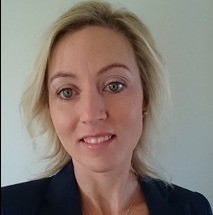What is your educational background?
With lots of enthusiasm, I started my career as BSc student at the North West University, Potchefstroom Campus. For three years, my majors were Zoology and Microbiology, followed with an Honors degree in Water Science. By this time, I was completely bitten by the “science-research” bug, and decided to continue with a Master’s degree at the University of Western Cape, and I later completed my PhD at Stellenbosch University.
What is your current occupation?
I am registered Post-doc at the NWU, but based in Cape Town. My research includes aquatic mycology, oomycetes, DNA, detection tools and lots of fun! My main focus at the moment is to develop a non-invasive detection tool for an aquatic oomycete that is fatal to both fresh and brackish water fishes.
What or who got you into STEM?
As long as I can remember, I was interested in water, including fresh water systems, estuaries and the oceans. This interest is coupled with the continual question of “what is it that we can’t see, yet we can see the results of?” This is what got me into the field of research that I currently find myself. But with little similar interest in the field, this research can be challenging at times. A friend of mine, Mathapelo Seopela (who is also interested in water) told me about the platform that Visibility STEM Africa provides and I jumped at the opportunity to become part of this network.
What is the biggest challenge/barrier you have faced as an African in STEM?
With most countries within Africa considered “3rd world order” countries, the continent is not acknowledged as a location with world-class science. In addition, as a researcher in Africa, funding has always been one of the biggest problems to face. This includes funding to attend international conferences and/or funding for laboratories. At times travelling within Africa to attend workshops/conferences can be challenging. Having a network in place (to connect us with industry, investors and other researchers) with online courses to equip us and our students with world-class research skills can help to address these challenges.
How do you think your background/upbringing has been beneficial in your journey/career?
As a young teenager, I learned that you cannot control everything that happens; but if you make an effort to understand problems and situations, you can assist in future prevention and/or cure. Knowledge is powerful, and one should never underestimate this power.
How do you think we can start to change the narrative surrounding African contributions
to global STEM research & careers?
It’s important to create more awareness, using both academia and social media platforms. We need to encourage STEM associates to point out their involvement with STEM during oral presentations, public engagements, etc. We could host conferences with the aim of bridging the gap between research, industry and investors.
What advice would you like to give to young, aspiring Africans in STEM?
My favourite words – “It is not always easy but it is not impossible” Take time out if you have to, step back if you want to, but never stop looking for an answer. It is not impossible.
Do you have any projects you’re working on that you would like us to highlight?
Improving our knowledge of aquatic fungi and oomycetes biodiversity in Africa. I am always on the lookout for aquatic fungi and fungi-like organisms especially if they are disease-causing agents on aquatic animals.






